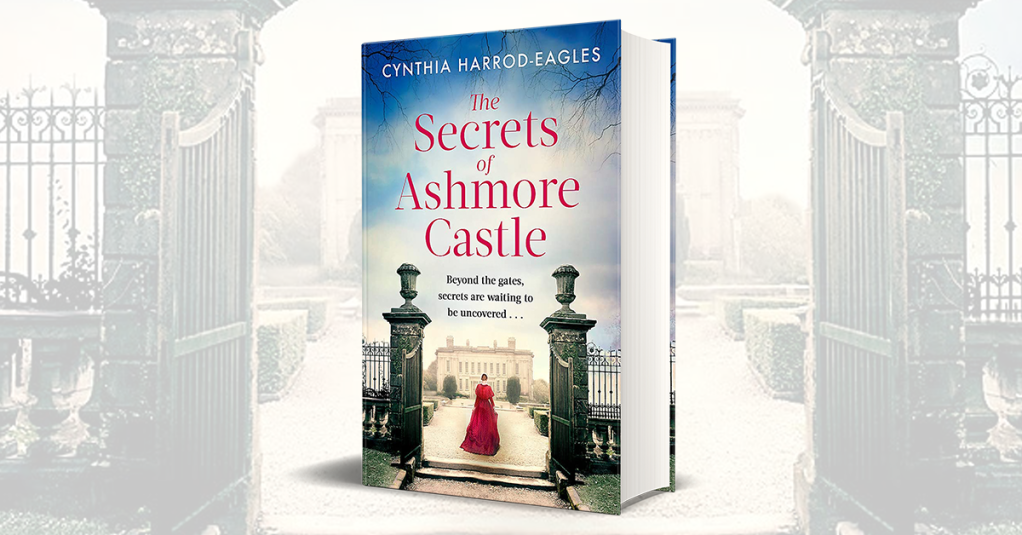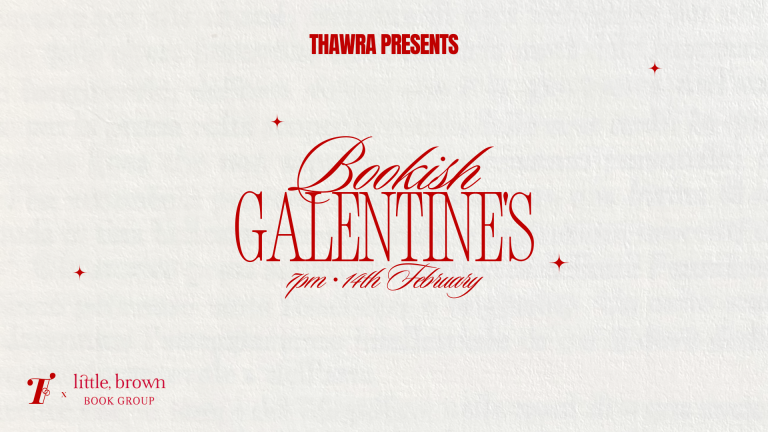Read an extract of Cynthia Harrod-Eagles’ The Secrets of Ashmore Castle

3rd December 1901
It was a hard walk up the hill, especially carrying a valise. Sometimes she had to pick her way through muddy hollows, where hoofs and wheels had churned the ground. The recent long, cold spell had broken, and it had been mild and wet, though today there was only a fine drizzle. At one point, she had to step aside as two grooms posted past, each riding one dapple grey and leading another. Carriage horses being exercised, she thought wisely, noting that they matched. They pranced and lifted their knees high, trying to toss their heads, and seemed very big, their weight displacing the air. She was prepared to smile and wave to the men, but they did not look at her as they passed. Horsemen were usually friendly, she had found, but an earl’s grooms were above ordinary mortals.
The big white house on the hill looked down over the Ash valley and dominated the view from the village of Canons Ashmore. It was called Ashmore Castle – she didn’t know why – but was always referred to as just ‘the Castle’. There was prestige in getting a place there, and when you left, a reference with that name on it was worth a lot. She followed the minor path round to the back, as instructed, and arrived eventually in a yard behind the kitchens where she discovered two men in footman’s livery, smoking. They had chosen a spot where the overhang kept the drizzle off them; they were jacketless, with long green aprons over their striped waistcoats and shirtsleeves.
One was tall and thin, with a hard, noticing face and rather bulging eyes. The other was shorter, plump, and with a face that denoted either good humour or stupidity.
‘Hullo, what have we here?’ said the thin one. His raking look took in the valise. ‘Fresh blood?’ He had been lounging with one foot up on the wall behind him. Now he pushed himself off and stood straight, continuing to examine her in a way that made her feel he could see right through her clothes. ‘Who are you, then?’
‘I’m the new sewing-maid. Dory Spicer.’
She looked at the plump one enquiringly.
‘William,’ he said, ‘William Sweeting.’
‘Nice to meet you, William,’ she said.
The thin one gave a derisive snort. ‘Ho, aren’t we polite?’ he mocked, in mincing tones. Then he thrust his face closer.
‘You listen to me, Dory Spicer – what sort of a name is Dory, anyway?’
She didn’t answer. She hated her name, Dorcas, and never let anyone find it out if she could help it.
‘Well, I’m James,’ the thin one went on, ‘and I’m first footman, so I’m an important person to get on the right side of. Be nice to me, and you could go far. I run this house.’
‘Isn’t there a butler? I heard there was a butler.’
‘Oh, Mr Moss,’ James said witheringly, and left it at that, as though nothing more needed to be said about him.
She looked at William, who swallowed nervously and said, ‘Mr Moss has been here for ever, nearly. Years and years. Him and his lordship go right back.’
‘What’s his lordship like?’ Dory asked, to encourage him.
James intervened. ‘You don’t need to know that. You’ll never see him. You’d best go and report to the housekeeper, Mrs Webster. Watch out for her – she’s a Tartar.’ He grinned at her, and his face was so thin she could see the muscles move and rearrange. It was unnerving. ‘Sewing-maid, eh? Watch you don’t go the same way as the last one.’
She knew he wanted her to ask him what that was, but she clung to one last grain of defiance. She wouldn’t ask him. Instead she said, as if meekly obedient, ‘All right,’ and went towards the nearest door.
‘Not that one,’ James called sharply. ‘That’s the kitchen. That one – rear lobby. Go through it and turn left, housekeeper’s room’s at the end.’
She changed direction and muttered, ‘Thanks,’ without looking at him again.
‘You don’t want to go in the kitchen without being invited,’ he called after her. ‘Lots of sharp knives in the kitchen.’
He’s just trying to scare you, she told herself, as she scurried past. But she didn’t like the hints of a divided, fractious household. He might be just a troublemaker, she thought, stepping through the rear lobby, with its smell of wet mackintoshes and boots, but that didn’t mean it wasn’t so.
It was a good day for hunting: the mild smells of earth rose damp and sweet through the thready mist, and the scent was breast high. Hounds were running well – a pocket handkerchief would cover them, as the saying was – and the clamour of their music echoed eerily on the winter air.
Behind them, the field galloped, strung out as the pace increased. The Earl of Stainton was well up with the leaders. Hunting was his passion. It was not about the kill, it was about the run: the speed, the sound of slamming hoofs and snorting breaths, the thrust of great muscles beneath him, the sting of the wind past his face. Joy filled him, fierce and exhilarating, blotting out any troubled thought. For a little while he could forget himself, his difficulties and responsibilities, and become a creature of pure sensation. He and the horse and the moment were one, a united thing of taut, glorious perfection.
The fox was old and cunning, and had led them a dance, but the earl had hunted this country since he was eight years old, and carried a map in his head of every contour and copse. It was his land, and he knew it as well as the fox did. He felt instinctively that Charlie was heading for the farm at Shelloes, where the large pig yard would foil the scent. Stainton took his own line whenever possible. He turned aside, sending Jupiter thundering diagonally across the slope. Ahead was a big blackthorn hedge, a formidable jump, and the approach was awkward, but it was well within Jupiter’s scope. Two paces away, the big bay pecked slightly, but Stainton pulled his head up, gave him a thwack behind the saddle, and shouted, ‘Come on!’ Jupiter grunted, thrust off, and rose magnificently to the challenge.
They soared. The earl cried out, ‘God!’ in simple ecstasy.
In the parlour of a small house in Ridgmount Street in Bloomsbury, four hands freed the notes of Schubert’s Sonata in C from the keys of the piano in a steady, accomplished rhythm. Dust motes swirled in the stream of pale winter sunshine that filtered through the net curtains, and glinted on the two golden heads, one middle-aged, one young.
Suddenly Mrs Sands threw up her head and cried softly, ‘God!’
The music tumbled to a halt.
‘Mummy? What’s wrong?’ Chloë asked.
Molly Sands had put both hands to her head. Now she opened her large, pale blue eyes, and took a shaky breath. ‘It’s all right. I’m all right,’ she reassured automatically.
Chloë continued to look at her anxiously. ‘Is it a headache?’
‘No – not . . . I just felt . . . I don’t know. Strange. As though . . .’ It had been as though she was falling – a black, swooping sensation. But it was momentary, and she did not like to see her daughter alarmed. She grew brisk. ‘It’s passed now, whatever it was. Begin again, please, from the triplets.’
Chloë didn’t immediately obey. She and her mother were very close; and there were just the two of them. They lived in a small but comfortable way on Mrs Sands’s earnings as a piano teacher. If anything happened to her mother . . .
‘Mummy?’
‘It was nothing. A moment’s dizziness. I’m quite all right now,’ Mrs Sands said firmly. ‘Begin, please.’
The music resumed.
—
The earl’s groom, Archer, following his master on the second horse, Tonnant, saw Jupiter’s knees strike the dense top of the hedge. Recently cut, it was bristly and unyielding. The enormous impetus of his jump flipped the horse over in a complete somersault. The earl went flying off. Archer jerked Tonnant away and aimed him at a spot further down the hedge, to avoid landing on whatever might be on the other side. The hedge was lower here, and Tonnant cleared it easily. His blood was up and it took half a dozen paces before Archer could check him and turn. By that time, Jupiter had already struggled to his feet, and was standing, trembling, one forefoot held off the ground, the saddle twisted round under his belly.
Beyond him, the earl was lying in a crumpled heap, unmoving. He was an experienced rider, hunted three or four times a week, had taken hundreds of tumbles in his time. He knew how to fall, should have got straight up. Must have winded himself, Archer thought, sliding down. And yet he knew. Something about the stillness of the body, the awkward angle of the neck . . . A cold dread settled in his stomach.
Tonnant was excited, threw up his head, snorting, would not be led nearer. But two other riders came over the hedge where Archer had jumped – Mr Whitcroft, a local farmer, and his son Tim.
‘What the—?’ Whitcroft exclaimed, pulling up so sharply that Tim’s horse cannoned into him. Both men quickly dismounted. Whitcroft took Tonnant’s reins from Archer and cried, ‘Go to him!’
Archer knelt on the bumpy grass, feeling strangely remote, as though the world was at the wrong end of a telescope. The earl must have hit the ground at an awkward angle. His head was twisted to one side, and one blank eye seemed to peer up at the sky. There was nothing to be done. He was gone.
Archer stood up shakily, met Mr Whitcroft’s gaze, and shook his head. Tim looked from one to the other and said, ‘He’s not—?’
‘God rest his soul,’ Archer replied, and Tim gulped.
Whitcroft turned to his son and said sharply, ‘Ride to the Castle, quick as you like, raise the alarm. Bring help.’
Archer roused himself. ‘Take Tonnant,’ he said. ‘He’s faster’n your plug.’
The boy looked white and shaken, but he had wits enough to obey, to separate out Tonnant’s reins, and cock his knee for Archer to leg him up. He was away while still feeling for his off-stirrup, Tonnant leaping straight into a gallop, still excited, eager to be moving again. Archer hoped the boy could stick on. Maybe he should have gone himself.
But he couldn’t leave his master.
‘Shouldn’t we straighten him out?’ Whitcroft said, the shock evident in his voice.
Mr Whitcroft was right, Archer thought. You couldn’t leave the earl all bunched up like that. ’Twasn’t respectful.
He straightened him out as best he could, then rose again awkwardly. Whitcroft took off his hat, and Archer followed suit. Must see to the horse, his groom’s instincts told him, but this moment had to be observed.
‘It’s the way he would have wanted to go,’ Mr Whitcroft offered tentatively.
‘Yes, sir,’ Archer said again. It was true, he thought. Not old and feeble in his bed, but with a horse under him and the damp winter air on his lips.
Now there was nothing to do but wait.






